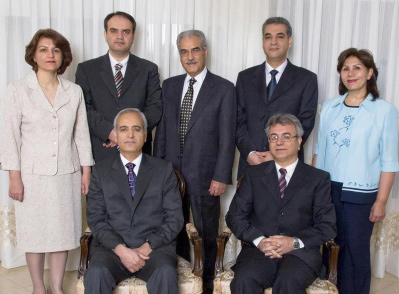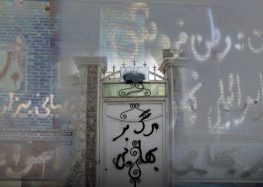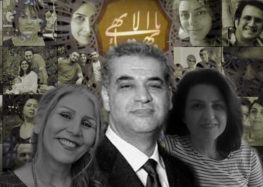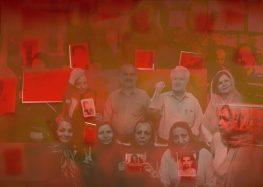Baha’i Leaders Remain Unjustly Detained After One Year
 Group of Seven Should Be Freed Immediately
Group of Seven Should Be Freed Immediately
(14 May 2009) Seven Baha’i leaders detained in Evin prison, Fariba Kamalabadi, Jamaloddin Khanjani, Afif Naeimi, Saeid Rezaie, Mahvash Sabet, Behrouz Tavakkoli and Vahid Tizfahm, should be immediately and unconditionally released, the International Campaign for Human Rights in Iran said today. Six members of the group were arrested one year ago today; Mahvash Sabet was arrested on 5 March 2008.
“The illegal and unjust detention of these seven Baha’i leaders, which again shows a policy of oppressing a religious minority, must be brought to an end,” said Aaron Rhodes, spokesperson for the Campaign. “The group is being denied basic civil rights by neither being allowed to visit with their lawyer, nor being formally charged with any crime.”
Family members of the detainees have reportedly been told that the charges against them will be Mofsed-e fel-Arz, or “spreading corruption on earth,” a charge that carries the death sentence. This same charge was used against Baha’i leaders immediately following the Islamic Revolution as justification for their executions.
Alireza Jamshidi, the Judiciary’s spokesperson, announced on 17 February 2009 that a court hearing for the group would be arranged within a week, but no hearing has been announced or held.
“These charges are extremely serious and the Iranian government should account for such accusations with verifiable evidence, or release the detainees” Rhodes said.
Members of the Baha’i Faith in Iran number approximately 300,000, making them the largest non-Muslim religious minority group. In recent years the persecution of Baha’is has intensified to include cemetery desecration, arbitrary detention, home raids, property confiscation, work expulsion and denial of basic civil rights. Iranian Baha’i youth continue to be denied the right to higher education, and any university found to have a Baha’i student is ordered to expel them. Baha’i professionals are denied government jobs and face discrimination from private businesses because of their faith. Harassment also occurs from ordinary citizens, for example the cars and homes of Baha’is reportedly being vandalized. Even those who come to their defense are targeted. Nobel Peace laureate Shirin Ebadi has come under fire for taking up the case of the seven Baha’i leaders.
There are currently at least 40 Baha’is in detention throughout Iran. In the month of April alone, arrests were reported in six cities.
Baha’is released on bail have been ordered to pay exorbitant amounts. Aziz Samandari and Jinous Sobhani, a former secretary at the Defenders of Human Rights Center, were released on 11 March on bail of 700 million Rials (approximately $73,000). Didar Raoufi, Payam Aghsani and Nima Haghar were released on the same day and ordered to pay the same amount. Shahrokh Taef was released six days later on 17 March 2009 having paid the same amount in bail.
The International Campaign for Human Rights in Iran calls on the government of Iran to comply with international human and civil rights standards and account for the detentions of all Baha’is in Iran. The Campaign urges Iranian leaders to investigate all discriminatory crimes against Baha’is and to allow Baha’i youth the opportunity to attend university.
“The continued persecution of the Baha’i community in Iran degrades all of the people of Iran,” Rhodes said. “The arbitrary detention and targeting of members of any single community should not be tolerated in any country, including Iran.”





